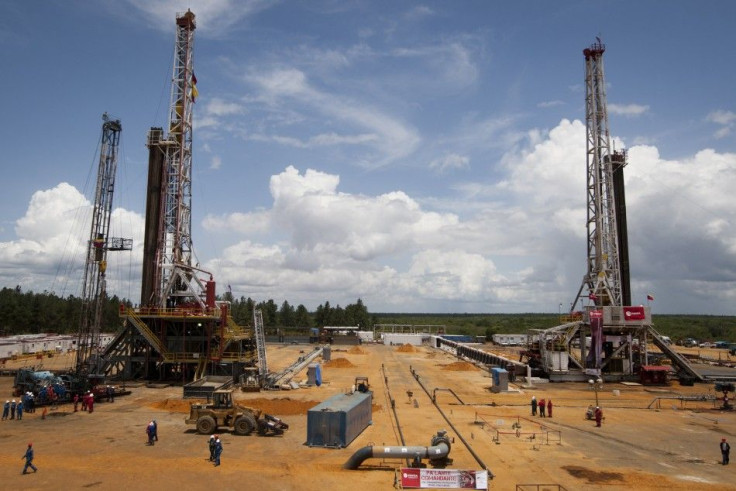Radioactive Material Shows Up In North Dakota Fracking Waste

Radioactive waste from fracking has shown up in a small North Dakota town, opening a new chapter in the debate over the controversial process.
In remote Noonan, a town with fewer than 200 residents, local officials found hundreds of trash bags filled with mildly radioactive waste in an abandoned building. The bags contained silt and waste water from the drilling technique known technically as hydraulic fracturing.
Officials found the bags in late February, the Wall Street Journal reported. Earlier, officials discovered a similar stash on flatbed trailers near a landfill in Watford City, in the sparsely populated western, Bakken Shale region.
The bags contained three-foot long, tubular filters of absorbent fiber called oil socks and used to capture silt from waste water. The collected silt contains low levels of radium, often found in soil, rock and water.
Radioactive waste is just the latest issue along with natural gas flaring and drilling on historic lands that North Dakota's shale oil boom has wrought.
"Before the Bakken oil boom we didn't have any of these materials being generated… so it wasn’t really an issue," Scott Radig, the state's director of waste management, told the Wall Street Journal.
Radiation levels from the silt-holding oil socks are low. A person could stand for a year by a dumpster full of the oil socks and absorb less radiation than from one dental X-ray, North Dakota state officials say.
Last week, the state passed new regulations, effective June 1, that will require the shale-oil industry to store the oil socks in leak-proof containers and on well sites, temporarily. Laws already existed that mandate the filters be finally handed to “licensed waste haulers” to transport to an authorized disposal facility.
But although the state has 500 to 600 injection wells using the socks it does not yet have a single storage facility capable of handling the radioactive waste. Standard dumps in North Dakota and around the country require waste to contain less than five picocuries of radium per gram, but the average concentration of radium in wastewater silt is about 75 picocuries, according to the U.S. Environmental Protection Agency.
Other states, including Idaho, Colorado and Utah have capable facilities.
The trailers found to be storing oil socks belonged to the Wyoming-based RP Services LLC.
© Copyright IBTimes 2025. All rights reserved.






















